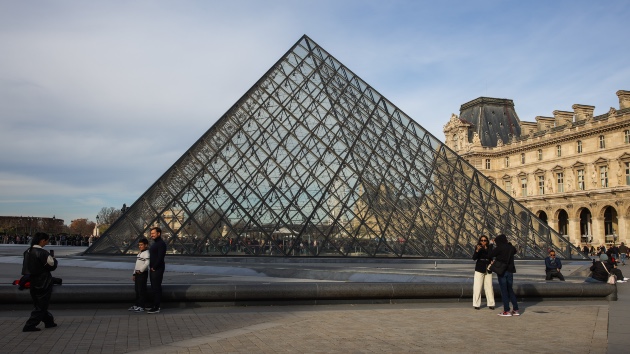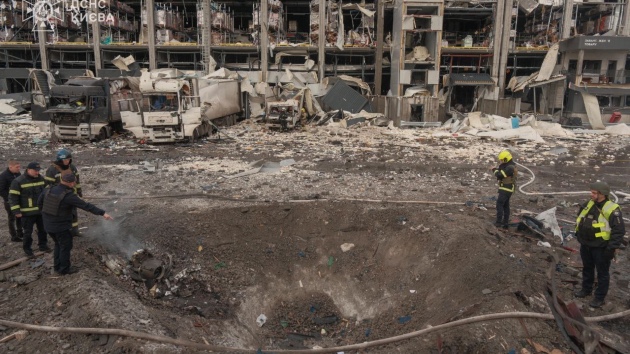Struggle for clean water in rural Mexico spotlights daily burden often taken on by women
Written by ABC Audio ALL RIGHTS RESERVED on April 21, 2023

(NEW YORK) — High in the hills of the San Juan Tlacotenco Forest, the worth of water is revealed as nearby villagers make the arduous journey to the Zacasonapan Spring.
For generations, the pilgrimage has been a regular tradition for many who live in the area and rely on the natural water source for survival. A particularly steep and rocky path shows just how treacherous it can be, especially while hauling heavy water jugs on the way back home.
Residents of the rural community, 60 miles south of Mexico City, are among two billion people around the world without access to clean and safe drinking water, according to the United Nations. Women around the globe are often the ones who bear this burden, spending a total of 200 million hours a day collecting water for their families, according to Water.org.
“We don’t have enough [water]. We never have enough. We have to buy from Pipas,” Ava Flores, who runs Los Agaondos, one of the only restaurants in the town of San Juan Tlacotenco, told ABC News’ Linsey Davis.
Flores primarily relies on rainwater harvested during the rainy season to run both her household and business. But by the end of the dry season — further aggravated by extreme droughts linked to climate change — Flores, like so many, run out of rainwater and need to pay for water to be trucked up the mountain.
“The main thing we need is water. We don’t have drinkable water here,” Flores said.
Some communities can spend as much as 20% of their income on water, according to Enrique Lomnitz, founder of Isla Urbana, a local water NGO specializing in improving rainwater harvesting.
The organization installed the giant tank in Flores’ front yard that captures and stores rainwater. It’s also connected to a filtration system, making it more manageable to do basic domestic necessities. When it runs out, it can be filled up by a water truck.
“Most of the places that have very severe water access problems in Mexico are also very remote, rural, predominantly very indigenous communities,” Lomnitz told ABC News.
In water crises, quality “is just as big” a problem as access, Lomnitz said. He founded Isla Urbana after seeing water issues plaguing his hometown of Mexico City.
“The street level is dropping about a foot and a half per year, because of how quickly we’re drawing water out of the ground. So, yeah, 22 million people running out of water. It’s a pretty terrifying thought,” Lomnitz said.
Isla Urbana is just one of the many organizations worldwide building solutions to help create equal access to water for all.
In 2009, actor and filmmaker Matt Damon, along with cofounder Gary White, created Water.org. The organization says it has empowered more than 52 million people with access to safe water or sanitation through affordable loan financing in 11 countries across four continents.
“It’s sheer liberation, right? You’re unshackled from this really onerous existence. Your day is dominated by, ‘How am I going to find and collect water?’ Versus the ability to go to school and start to think about, ‘OK, well what kind of life could I actually build for myself?'” Damon said in an interview with Davis.
White gave the example of a woman in the Philippines who he says was paying $60 per month to water vendors. After taking out a small loan through the organization, she’s now paying $5 a month for repayment and $5 a month for her utility bill, White said.
“It’s not just the needless kind of death and disease that happens because of this issue. It’s the robbing human beings, particularly girls, of their potential to live out their dreams and maximize their potential and live the lives that they want to live,” Damon said.
In San Juan Tlacotenco, it’s a dream that Rosalba Linares hopes will come true for her 14-year-old daughter, Dulce.
“There was a time where we didn’t have water, and that can make you sick,” Dulce told ABC News.
She dreams of a day she doesn’t have to worry about water or waiting for the rain to come.
About a year ago, the NGO SARAR stepped in to help the family build a bathroom that doesn’t use any water, as well as a filter system to make their rainwater instantly drinkable. Both have tremendously improved their quality of life, Rosalba said.
“We now live sanitized. We are happier, and everything is much cleaner,” Rosalba said.
Still, Rosalba said that it has been raining less often, forcing her to buy water for her family.
According to SARAR operations director Rafael Almazán, water collection often falls on women because it’s considered a domestic chore. Alamanza also said that many of the men in the community migrate to the United States in search of work, leaving young girls like Dulce to bear the silent daily burden.
“I would like for the future, to help my community, so there’s water everywhere,” she said.
Copyright © 2023, ABC Audio. All rights reserved.

 KVSP
KVSP 




